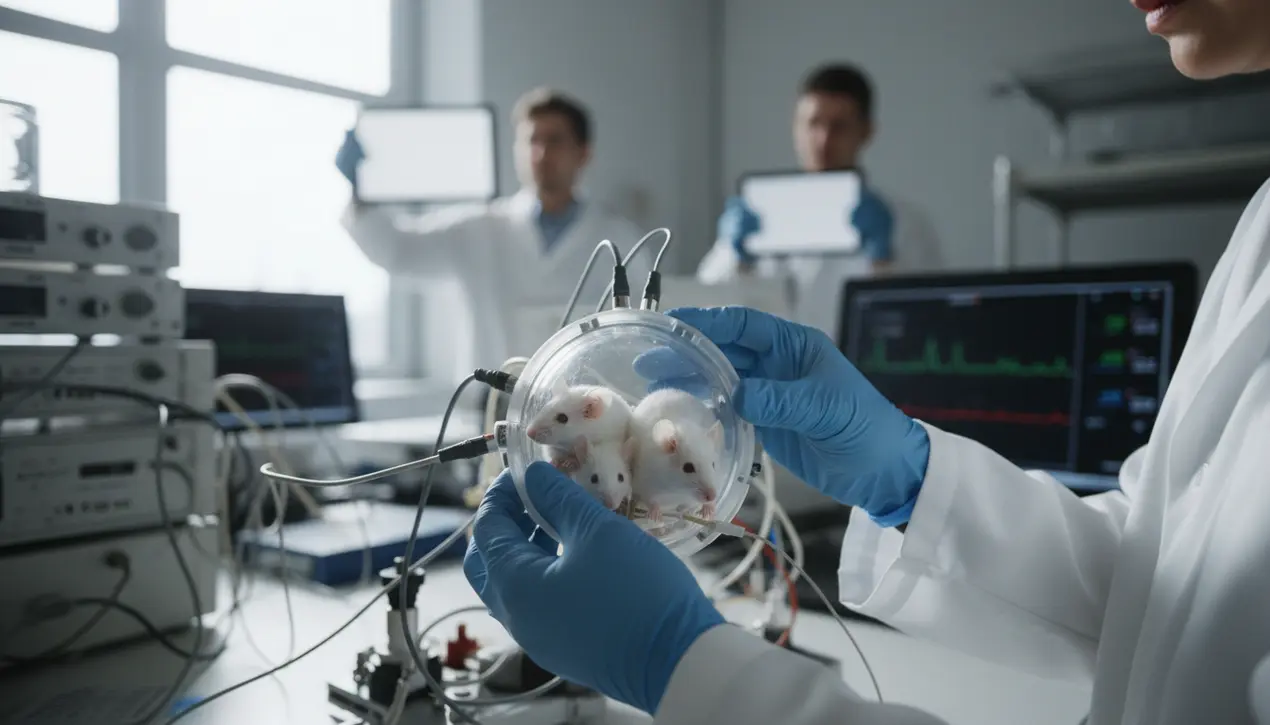
Sciencespace & astronomyMoon and Mars Exploration
Mice Return from China's Space Station After Microgravity Study
TH
Thomas Green
2 hours ago7 min read2 comments
In a mission that underscores the accelerating pace of China's ambitious space program, four mice have successfully returned to Earth alongside the Shenzhou-16 astronaut crew, following a landmark study aboard the Tiangong space station. The rodents, which spent several weeks in orbit, were part of a critical biological experiment designed to unravel the complex effects of prolonged microgravity on small mammals—a vital stepping stone for future long-duration human missions to the Moon and, eventually, Mars.Their return was not without drama; the mission experienced a slight delay due to concerns over potential capsule damage, a reminder of the ever-present risks of space travel that echo the challenges faced during the early days of the Apollo and Soyuz programs. For scientists at the Chinese Academy of Sciences, the data harvested from these tiny astronauts is pure gold.It will provide unprecedented insights into bone density loss, muscle atrophy, and cardiovascular deconditioning in a mammalian system, phenomena that have long plagued astronauts from NASA, Roscosmos, and ESA. Think of it as a high-stakes physiological puzzle: by observing how a mouse's body, which shares a remarkable amount of genetic and biological machinery with our own, adapts and deteriorates in weightlessness, researchers can develop more effective countermeasures, from advanced pharmaceutical interventions to targeted exercise regimens.This isn't merely an isolated experiment; it's a direct challenge to the hegemony of the International Space Station, positioning Tiangong as a formidable, independent platform for cutting-edge microgravity research. As private entities like SpaceX and Blue Origin push the boundaries of commercial spaceflight, and NASA's Artemis program aims for a sustained lunar presence, understanding the biological toll of space becomes the paramount obstacle. The successful return of these mice is more than a technical achievement; it is a quiet but firm declaration that the next great leap for humanity into the cosmos will be a multinational, biologically-informed endeavor, and China is now writing its own chapters in that story.
#space exploration
#microgravity research
#China space station
#mice experiment
#biology in space
#lead focus news
Stay Informed. Act Smarter.
Get weekly highlights, major headlines, and expert insights — then put your knowledge to work in our live prediction markets.
Related News
Comments
Loading comments...
© 2025 Outpoll Service LTD. All rights reserved.